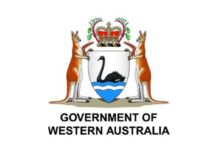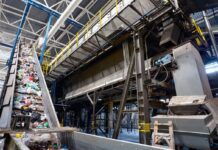
A new solar panel recycling facility has officially opened at Bankstown Airport, as part of ongoing efforts in New South Wales to expand recycling infrastructure and manage end-of-life solar panels, the NSW Environment Protection Authority (EPA) announced.
Operated by Sydney-based startup PV Industries, the facility is expected to process up to 6,000 tonnes of solar panels per year – equivalent to about 200,000 panels – with each panel processed in under 90 seconds, EPA said in a news release.
According to EPA, the company’s technologies, known as the Deframer and Deglasser, can recover up to 90 per cent of materials by weight from end-of-life solar panels.
NSW EPA Chief Executive Tony Chappel said the EPA had provided $3.3 million to help establish the commercial-scale operation, which will contribute to addressing the state’s growing solar waste challenge.
“This new Bankstown facility is a game changer, with the capacity to take large amounts of solar panel waste and drive new end-markets for recovered glass and critical minerals,” Chappel said.
“It’s estimated by 2035, solar panel waste in NSW could reach up to 63,000 tonnes per year, so facilities like this will be critical to managing this growing waste stream.”
EPA said the new facility is supported by six drop-off points across the state, located in Bankstown, Dubbo, Maitland, Newcastle, Thornleigh, and the Central Coast, to build a collection network for end-of-life panels.
PV Industries co-founder James Petesic said the company welcomed the NSW EPA’s support and the collaborative efforts of its partners in bringing the project to fruition.
“The NSW EPA had the foresight in 2019 to establish the Circular Solar grant program, the first of its kind in Australia, to futureproof NSW’s solar recycling capacity,” Petesic said. “It enabled us at PV Industries, a local Sydney start-up, to bring our Deframer and Deglasser to life and ensure we are ready for the pending wave of end-of-life solar panels.”
Another facility has also been commissioned in Parkes by e-waste processor Sircel Ltd, which aims to process around 160,000 solar panels, or 3,500 tonnes, annually, according to EPA.


















